

Recent neural networks capture properties long thought to require symbols: compositionality, productivity, rapid learning
So what role should symbols play in theories of the mind? For our answer...read on!
Paper: arxiv.org/abs/2508.05776
1/n

Bayesian models can learn rapidly. Neural networks can handle messy, naturalistic data. How can we combine these strengths?
Our answer: Use meta-learning to distill Bayesian priors into a neural network!
www.nature.com/articles/s41...
1/n
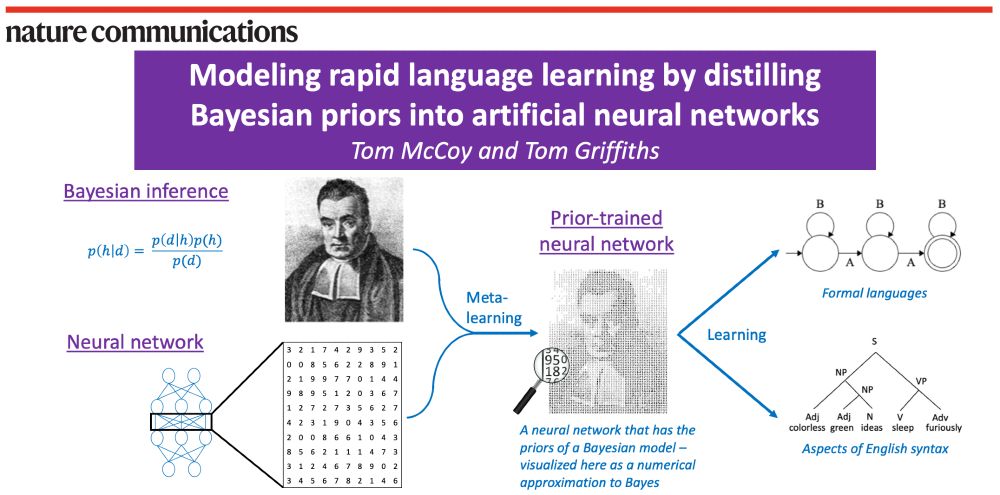
Bayesian models can learn rapidly. Neural networks can handle messy, naturalistic data. How can we combine these strengths?
Our answer: Use meta-learning to distill Bayesian priors into a neural network!
www.nature.com/articles/s41...
1/n
Thrilled to share new research on teaching!
Work supervised by
@cocoscilab.bsky.social, @yaelniv.bsky.social, and @markkho.bsky.social.
This project asks:
When do people teach by mentalizing vs with heuristics? 1/3
osf.io/preprints/os...
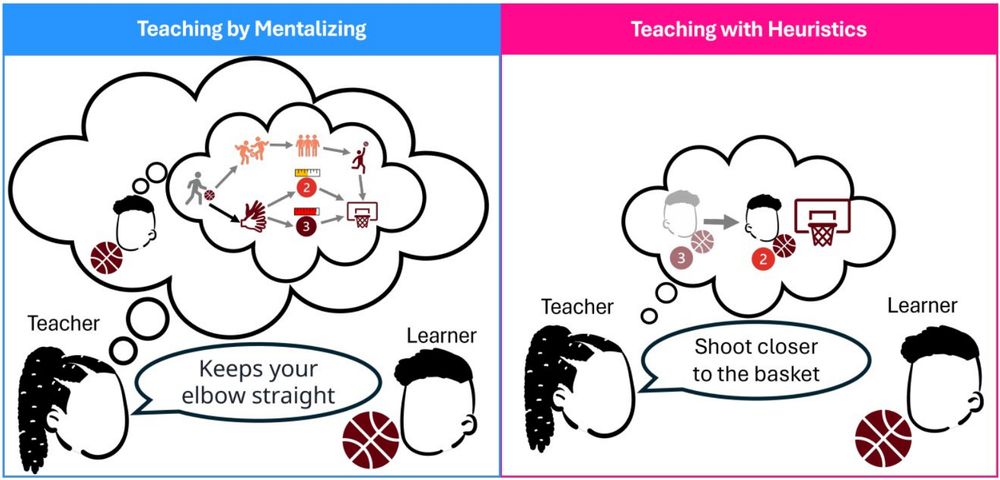
Thrilled to share new research on teaching!
Work supervised by
@cocoscilab.bsky.social, @yaelniv.bsky.social, and @markkho.bsky.social.
This project asks:
When do people teach by mentalizing vs with heuristics? 1/3
osf.io/preprints/os...
Binary climate data visuals amplify perceived impact of climate change.
Both graphs in this image reflect equivalent climate change trends over time, yet people consistently perceive climate change as having a greater impact in the right plot than the left.
👇1/n

Binary climate data visuals amplify perceived impact of climate change.
Both graphs in this image reflect equivalent climate change trends over time, yet people consistently perceive climate change as having a greater impact in the right plot than the left.
👇1/n
⭐️ New preprint w/ Ruaridh Mon-Williams, @neilbramley.bsky.social, Chris Lucas, @natvelali.bsky.social & @cocoscilab.bsky.social
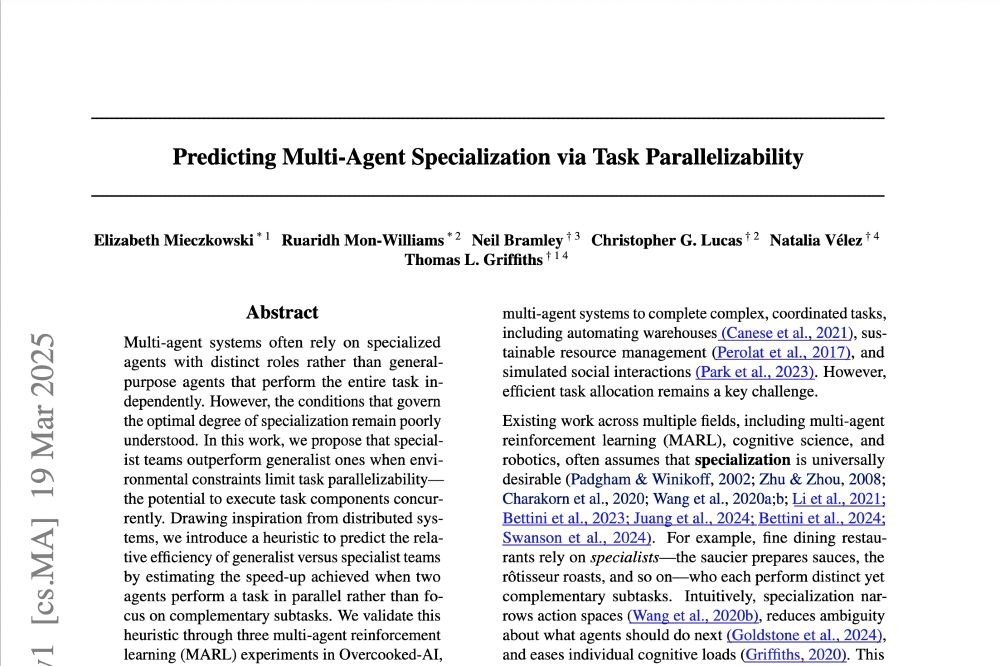
tldr: We ask participants to generate hierarchical plans in a programming game. People prefer to reuse beyond what standard accounts predict, which we formalize as induction of a grammar over actions.
authors.elsevier.com/a/1kBQr2Hx2x...
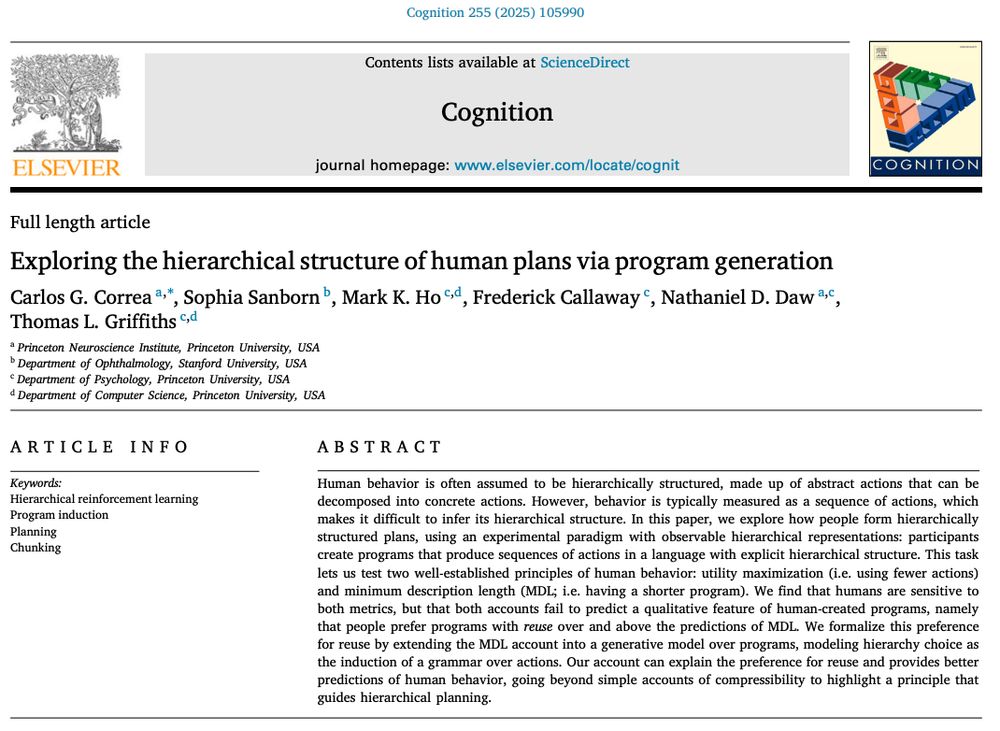
tldr: We ask participants to generate hierarchical plans in a programming game. People prefer to reuse beyond what standard accounts predict, which we formalize as induction of a grammar over actions.
authors.elsevier.com/a/1kBQr2Hx2x...

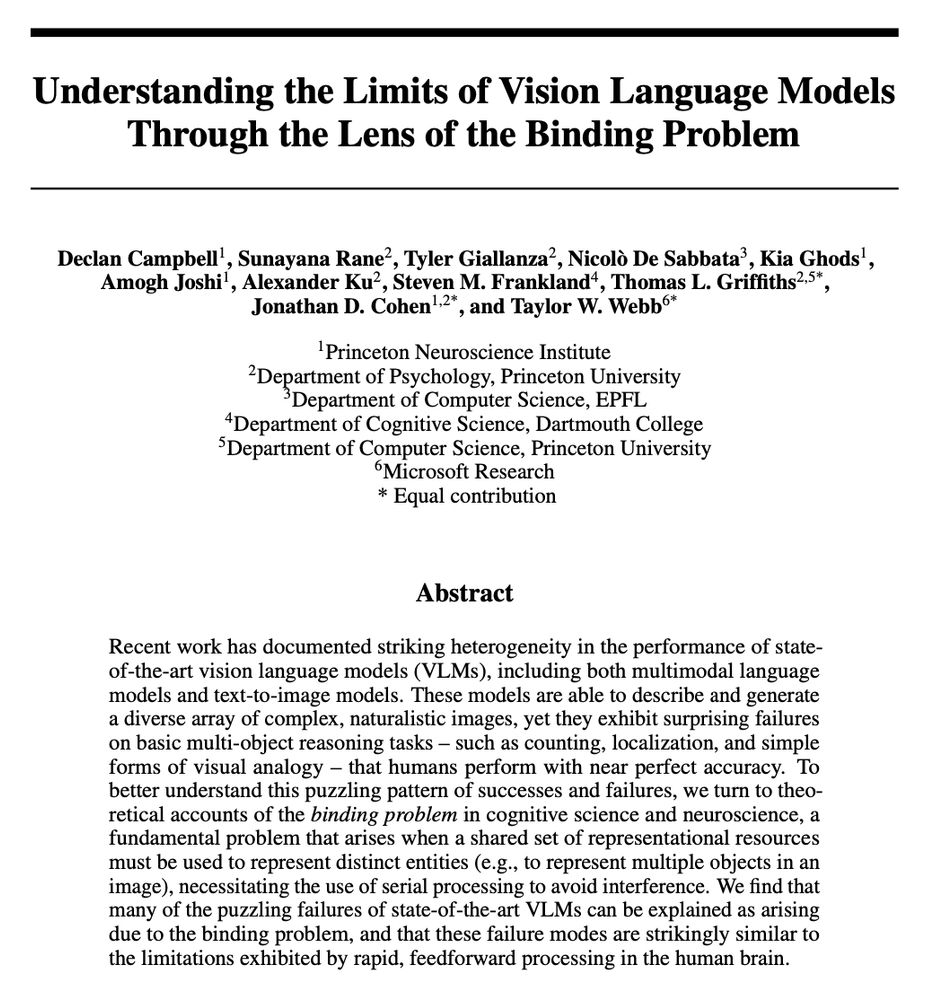
arxiv.org/abs/2311.10206
arxiv.org/abs/2311.10206

